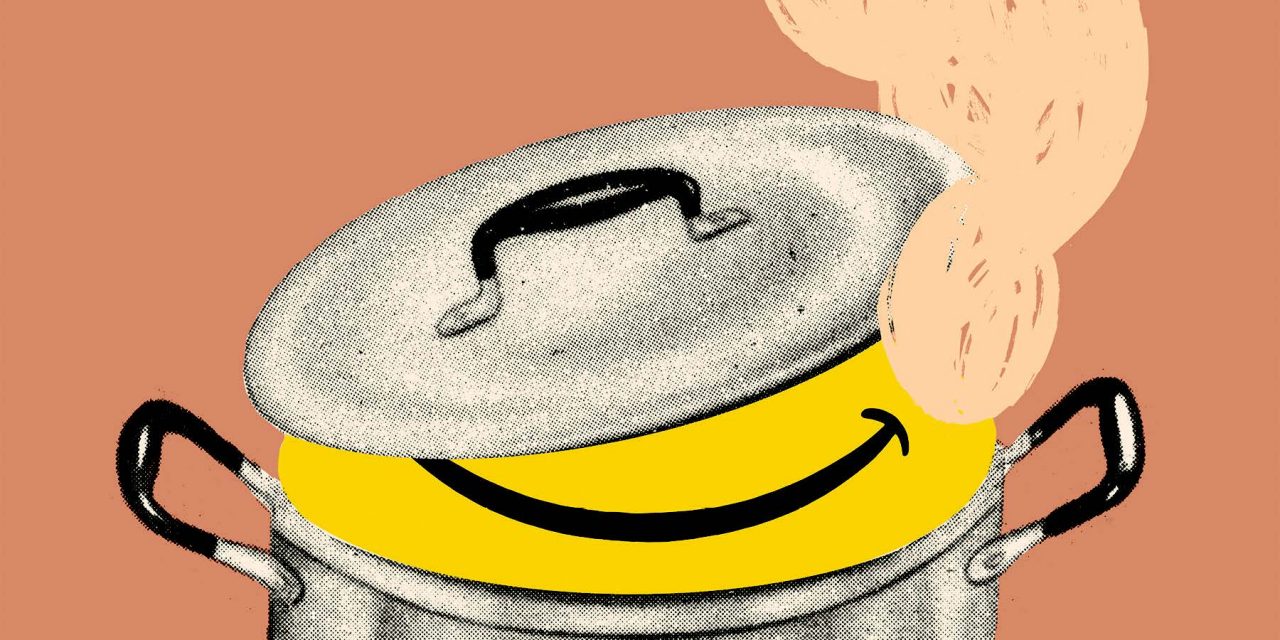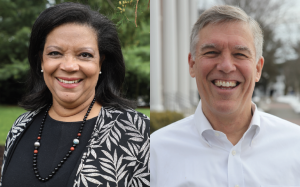
Seminars to Feed the Soul

IN A YEAR OF MANY CHALLENGES, TWO SENIOR SEMINARS FOCUS
ON THE RELEVANCE AND PLEASURE OF FOOD AND COOKING
As the COVID-19 pandemic stretched on and its economic destruction put independent restaurants and food-insecure individuals in danger, IRENE LI ’08, chef and owner of Mei Mei in Boston, mobilized with another chef and labor organizers to provide some relief, she told Milton seniors last spring.
“We have always thought of Mei Mei as a business that’s pretty grounded in the community,” she said. “We get requests all the time to participate in different events and fundraisers, to give donations.When the pandemic happened, I thought we could do more than just agree to the things that are asked of us— we can proactively participate and look for the opportunities to serve our neighbors and our community.”
Li had been invited to speak to students taking a senior seminar taught by ROD SKINNER ’72, dean of college counseling, about the intersections of activism, culture, and food. Senior seminars are part of a new program that allowed the Class of 2021 to explore various topics in their final weeks of school.
The Senior Project is a time-honored Milton tradition. During the month of May, seniors go “on project,” working on independent studies that range from creative pursuits to scientific research. In regular years, many students opt for intern- ships in fields that interest them or shadow professionals. This year, because of covid-19 restrictions, many off-campus projects could not happen. Upper School leaders expanded project options with senior seminars: four weeks of learn- ing from adults in the community about a variety of subjects, including 2020 prize fiction, psychology in film and media, race and the War on Drugs, Latin epigraphy, the history of cointelpro and the civil rights movement, and magic.

Pamela Pleasants, associate dean of admission (left) and Rod Skinner ‘72, dean of college counseling, took part in this year’s senior project, a time-honored Milton tradition.
Skinner’s course, Cooking as Activism: How What We Cook Protects and Sustains Culture, was one of two food-centric seminars. Pamela Pleas- ants, associate dean of admission, taught Feeding Your Soul, a seminar focused on appreciating food and learning to cook. Each seminar was taught virtually and available to both on-campus students and those learning remotely.
Pleasants focused on giving students foundations for cooking well: basic soups and breads (both sweet and savory) they could assemble with easily accessible ingredients. The students were asked to replicate and try the recipes she shared in virtual cooking classes from the Robbins House kitchen. She also asked them to focus on mindful consumption and develop an understanding and love of food. They read excerpts from Thich Nhat Hanh’s How to Eat and watched clips from films such as Babette’s Feast, Chef, Big Night, and Eat, Drink, Man, Woman.
“The class is called Feeding Your Soul, so I want them to think about what nourishes and comforts them and where their food comes from— to develop a deeper appreciation for food,” Pleasants says. “I shared recipes from different cultures and talked about how the different components worked in each dish.”
Skinner’s seminar evolved over the course of its run, as discussion branched into intriguing topics. His students read articles and watched documentaries about food authenticity, anthropology, culture, dishes with a history in oppression or migration, agriculture—including the film King Corn, which was directed by IAN CHENEY ’98—and food activism, like that of chef José Andrés, founder of World Central Kitchen, and Li, who shared how she turned her skills and resources into community action.
“The genesis of the seminar is that I heard an interview with [Ethiopian-Swedish chef] Marcus Samuelsson about how the preservation of different dishes, kitchens, and restaurants was also the preservation of culture, of identity, family, and community,” Skinner says.“The course has outgrown its title at this point. Yes, there’s cooking, but we’re really looking at food as a core piece of life, culture, and history.”
During her virtual visit, Li told the students about initiatives launched during the pandemic that enabled her to use her knowledge of food and the Boston service industry to help others: a campaign called Unsung Restaurants (@Un- sungRestaurants on Instagram), to promote and fundraise for small local restaurants; and Project Re- store Us, a joint venture with fel- low chef Tracy Pang and organizers Lily Huang and Marena Lin, which raises money to buy food from local restaurants and deliver it to families in need.
“Food—and our rituals around it—is so full of meaning,” Skinner says. “Food can be a metaphor for just about everything you could think about. I’m having so much fun that I’m trying to develop a full- blown course around these topics, or at least a very comprehensive read- ing and viewing list.”
In addition to Li, Skinner’s seminar welcomed Lincoln Fishman of Sawyer Farm, in western Massachusetts. Fishman runs one of just two horse-powered farms in the state.
“There is a story behind every item of food we eat and every recipe we use,” Ishana Rodriguez ’21 reflected at the end of Skinner’s seminar. “We should be more aware of where our food comes from and its significance to people across differ- ent cultures.”
In her last session with students, Pleasants demonstrated how to cook ramen—real ramen, not the sodium-dense kind from a plastic pouch—and an all-purpose muffin, to which students could add their favorite extras, such as blueberries or chocolate chips.
Throughout the seminar, the students cooked each recipe on their own, using a shared Google Drive folder to show off pictures of their homemade gazpacho, minted pea soup, gougères, and scones. Pleas- ants asked them to share reflections on each dish.
Many expressed surprise at how much they enjoyed trying new flavors as well as the act of cooking itself.
Using a sometimes-temperamental General Electric hand mixer she inherited from her grandmother, Pleasants encouraged the students to explore while they’re cooking, to adjust flavors and be patient.
“I want you all to know that any- one can cook from scratch and make a decent meal,” she said. “Cooking is an expression of who you are and how you share with others.”
illustration by Miguel Porlan




